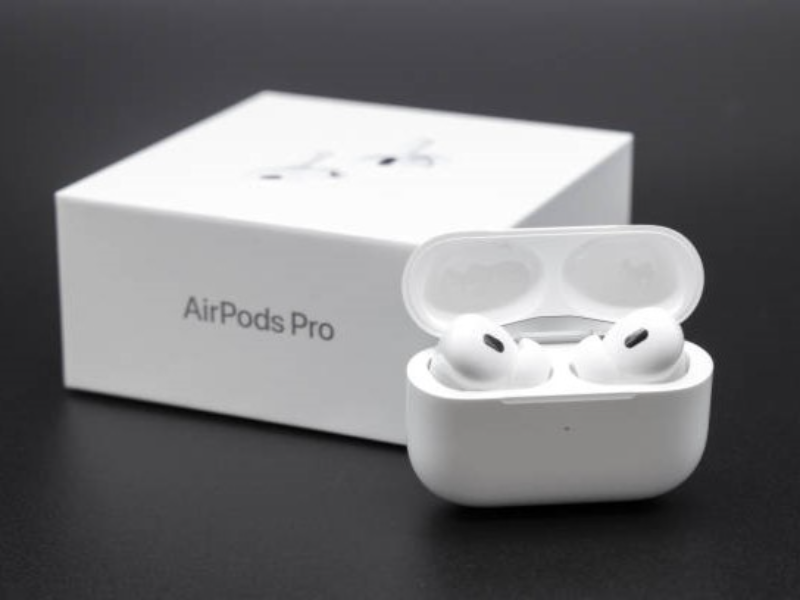- The FDA has authorised over-the-counter hearing aid software for Apple AirPods Pro 2, enabling personalised hearing assistance through a software update.
- This new feature will enhance accessibility for millions with mild-to-moderate hearing loss, using iOS HealthKit to customise sound amplification.
OUR TAKE
Apple’s integration of over-the-counter hearing aid functionality into AirPods Pro 2 marks a significant leap in wearable tech and healthcare accessibility. This FDA-approved feature makes hearing assistance more affordable and user-friendly, highlighting the tech industry’s growing influence in medical innovation and transforming everyday devices into essential healthcare tools.
–Jasmine Zhang, BTW reporter
What happened
The U.S. Food and Drug Administration (FDA) has authorised the first over-the-counter (OTC) hearing aid software for use with Apple’s AirPods Pro 2, allowing them to function as personalised hearing aids.
With an upcoming software update, AirPods Pro 2 will amplify sounds in real time, enhancing speech and environmental audio for users with mild-to-moderate hearing loss. This feature, available this fall in over 100 countries, will be customised via iOS HealthKit, making hearing support more accessible.
The approval is part of the FDA’s broader effort to improve access to hearing aids, following a 2022 ruling allowing adults to purchase OTC hearing aids without a prescription or medical exam. More than 30 million U.S. adults report hearing loss, and Apple’s software aims to increase the availability and affordability of hearing solutions for this population.
Also read: Apple unveils AI-powered watches and AirPods
Also read: Apple to unveil iPhone 16 lineup on September 9, teases ‘Glowtime’ event
Why it’s important
Apple’s move to turn AirPods Pro 2 into over-the-counter hearing aids could be a game changer, not just for hearing assistance but for how we think about wearable tech. For millions who suffer from mild-to-moderate hearing loss, accessing quality hearing aids has been costly and cumbersome. By integrating this functionality into a device people already use daily, Apple is breaking down accessibility barriers, making hearing support more affordable and user-friendly.
But this is more than just a convenience. It signals a shift in the tech industry’s role in healthcare, where companies like Apple are transforming everyday gadgets into essential medical tools. The FDA’s approval of Apple’s software shows the growing trust in tech companies to innovate in the medical space. It’s a win for users who no longer need to shell out thousands for hearing aids—and a preview of how tech giants could revolutionise personal healthcare in the future.

